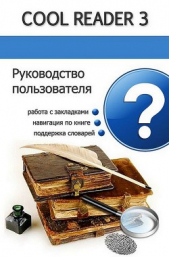Словарь американских идиом: 8000 единиц

Словарь американских идиом: 8000 единиц читать книгу онлайн
Это обновленное и дополненное издание, содержащее более 8000 идиоматическихслов и выражений, причем каждое из которых снабжено грамматическим объяснениеми практическим примером. Словарь содержит лексемные идиомы, фразеологическиеединицы и поговорки, имеющие особенное значение. В нем приведены наиболееупотребительные выражения только американского английского языка. Этот словарь?—?идеальное пособие для студентов, часто разъезжающих бизнесменов и простопутешественников.
Внимание! Книга может содержать контент только для совершеннолетних. Для несовершеннолетних чтение данного контента СТРОГО ЗАПРЕЩЕНО! Если в книге присутствует наличие пропаганды ЛГБТ и другого, запрещенного контента - просьба написать на почту [email protected] для удаления материала
[hire out]{v.}, {informal} 1. To accept a job; take employment. •/Frank hired out as a saxophonist with a dance band./ 2. To rent (as owner). •/John used to hire out his tractor sometimes when he didn’t need it himself./
[history] See: GO DOWN IN HISTORY or GO DOWN IN THE RECORDS.
[hit] See: HARD-HITTING, MAKE A HIT, SMASH HIT.
[hit and miss] See: HIT OR MISS.
[hit-and-run]{adj.} 1. Of or about an accident after which a motorist drives away without giving his name and offering help. •/Judges are stern with hit-and-run drivers./ 2. Striking suddenly and leaving quickly. •/The bandits often made hit-and-run attacks on wagon trains./
[hit below the belt] See: BELOW THE BELT.
[hit between the eyes]{v. phr.}, {informal} To make a strong impression on; surprise greatly. •/Helen hit Joe right between the eyes the moment he saw her./ •/It was a wonderfully lifelike picture, and it hit Sol right between the eyes./ •/To learn that his parents had endured poverty for his sake hit John between the eyes./
[hit bottom] or [touch bottom] {v. phr.}, {informal} 1. To be at the very lowest. •/In August there was a big supply of corn and the price hit bottom./ •/When Johnny failed the exam his spirits hit bottom./ 2. To live through the worst; not to be able to go any lower. •/After all their troubles, they thought they had hit bottom and then something else happened./ •/When they lost all their money they thought they had touched bottom and things would have to get better./
[hitch one’s wagon to a star]{v. phr.} To aim high; follow a great ambition or purpose, •/In trying to be a famous pianist, Mary had hitched her wagon to a star./ •/John hitched his wagon to a star and decided to try to become President./
[hither and thither] or [hither and yon] {adv. phr.}, {literary} In one direction and then in another. •/Bob wandered hither and thither looking for a playmate./ Compare: HERE AND THERE.
[hither and yon] See: HITHER AND THITHER.
[hit home]{v. phr.} To go directly to the mark; strike a vulnerable spot. •/His remark hit home when he referred to those who do not contribute sufficiently to the college fund drive./
[hit it off]{v. phr.}, {informal} To enjoy one another’s company; be happy and comfortable in each other’s presence. •/Tom and Fred hit it off well with each other./ •/Mary and Jane hit it off from the first./ Syn.: GET ALONG.
[hit on] or [hit upon] {v.} To happen to meet, find, or reach; to choose or think by chance, •/John hit on a business that was just starting to grow rapidly./ •/There seemed to be several explanations of the crime, but the detectives hit on the right one the first time./ Compare: HAPPEN ON.
[hit on all cylinders]{v. phr.} 1. To run smoothly or at full power without any missing or skipping. — Said of a motor. •/The mechanic tuned the car engine until it was hitting on all cylinders./ 2. {informal} To think or work well; to use all your ability. •/The football team was hitting on all cylinders and scored a big victory./ •/Bob began to write his examination, and found himself hitting on all cylinders./
[hit one’s stride]{v. phr.} 1. To walk or run at your best speed; reach your top speed or game. •/After walking the first mile, Jim was just hitting his stride./ •/The horse began to hit his stride and moved ahead of the other horses in the race./ 2. To do your best work; do the best job you are able to. •/Mary didn’t begin to hit her stride in school until the fifth grade./
[hit-or-miss] also [hit-and-miss] {adj.} Unplanned; uncontrolled; aimless; careless. •/John did a lot of hit-or-miss reading, some of it about taxes./ •/Mary packed her bag in hurried, hit-or-miss fashion./
[hit or miss] also [hit and miss] {adv.} In an unplanned or uncontrolled way; aimlessly; carelessly. •/George didn’t know which house on the street was Jane’s, so he began ringing doorbells hit or miss./
[hit parade]{n.} 1. A list of songs or tunes arranged in order of popularity. •/Tom was overjoyed when his new song was named on the hit parade on the local radio station./ 2. {slang} A list of favorites in order of popularity. •/Jack is no longer number one on Elsie’s hit parade./
[hitter] See: PINCH HIT, PINCH HITTER, PULL HITTER.
[hit the books]{v. phr.}, {informal} To study your school assignments, prepare for classes. •/Jack broke away from his friends, saying, "I’ve got to hit the books."/
[hit the bull’s-eye]{v. phr.}, {informal} To go to the important part of the matter; reach the main question. •/John hit the bull’s-eye when he said the big question was one of simple honesty./
[hit the ceiling] or [hit the roof] {v. phr.}, {slang} To become violently angry; go into a rage. •/When Elaine came home at three in the morning, her father hit the ceiling./ •/Bob hit the roof when Joe teased him./ Syn.: BLOW A FUSE.
[hit the deck]{v. phr.} To get up from bed, to start working. (From sailor’s language as in "All hands on the deck!") •/OK boys, it’s time to hit the deck!/
[hit the dirt]{v. phr.}, {slang}, {military} To take cover under gunfire by falling on the ground. •/We hit the dirt the moment we heard the machine gun fire./
[hit the fan]{v. phr.}, {informal} To become a big public problem or controversy. •/The whole mess hit the fan when the judge was arrested for drunken driving for the second time./
[hit the hay] or [hit the sack] {v. phr.}, {slang} To go to bed. •/The men hit the hay early, in order to be out hunting at dawn./ •/Louis was so tired that he hit the sack soon after supper./
[hit the high spots]{v. phr.} To consider, mention, or see only the more important parts of something such as a book, war, or school course. •/In his lecture, the speaker hit the high spots of his subject./ •/The first course in general science hits only the high spots of the physical sciences./ •/The Bakers went to the fair for one day, and only hit the high spots./
[hit the jackpot]{v. phr.}, {slang} To be very lucky or successful. •/Mr. Brown invented a new gadget which hit the jackpot./ •/Mrs. Smith hit the jackpot when she got Lula for a maid./
[hit the nail on the head]{v. phr.} To get something exactly right; speak or act in the most fitting or effective way. •/The mayor’s talk on race relations hit the nail on the head./
[hit the road]{v. phr.}, {slang} 1. To become a wanderer; to live an idle life; become a tramp or hobo. •/When Jack’s wife left him, he felt a desire to travel, so he hit the road./ 2. To leave, especially in a car. •/It is getting late, so I guess we will hit the road for home./ •/He packed his car and hit the road for California./
[hit the roof] See: HIT THE CEILING.
[hit the sack] See: HIT THE HAY.
[hit the sauce]{v. phr.}, {slang} To drink alcoholic beverages — especially heavily and habitually. •/When Sue left him, Joe began to hit the sauce./
[hit the spot]{v. phr.}, {informal} To refresh fully or satisfy you; bring back your spirits or strength. — Used especially of food or drink. •/A cup of tea always hits the spot when you are tired./ •/Mother’s apple pie always hits the spot with the boys./

























